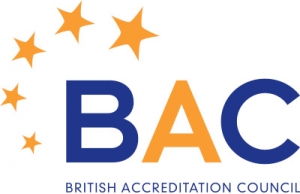
INTERNAL QUALITY ASSURANCE
BAC takes measures to ensure that its management and accreditation work meet the highest standards and provide a high quality of service. A range of activities underpin our operation.
GOVERNANCE AND ACCOUNTABILITY
The Board of Trustees maintains an oversight of BAC, ensuring that its work is aligned with UK education policy and the highest standards of accreditation practice.
The Council and Accreditation Committee oversee the regular work of BAC. Both committees periodically review the effectiveness of their own work. The Accreditation Committee makes all decisions with regard to accreditation status and oversees and reviews the design and implementation of the accreditation procedures. The Accreditation Committee’s minutes are received by the Council
BAC is subject to external financial audit. Annual reports on its financial standing and the broad range of activities completed over the year are made to the Charity Commission and to Companies House.
BAC is committed to maintaining the highest level of ethical standards in the conduct of its activities and to act professionally, fairly and with integrity in all our activities, both in the United Kingdom (UK) and internationally. BAC is committed to implementing and enforcing effective systems to ensure that bribery and corruption play no part in how we conduct our affairs. Further information can be found in the Anti-Bribery and Anti-Corruption Policy.
MANAGEMENT AND ADMINISTRATION
The overall management of BAC is the responsibility of the Chief Executive Officer reporting to the Council. The Chief Executive presents a report on progress and actions taken to each meeting of the Council. The Council periodically carries out a review of its own effectiveness in which it considers its meetings and their effectiveness in the strategic management of BAC as an organisation.
On a day-to-day basis, regular consultation takes place between the Chief Executive, the Chief Inspector and members of the Head Office staff to ensure the smooth running of the organisation.
BAC’s aim as an employer is to ensure that all its staff are equipped with the knowledge and skills needed to carry out their tasks and responsibilities. The efficient operation of the Head Office is supported by induction, training, and staff development. A full range of human resources policies and practices are in place and are published in the Employee Handbook. Staff are supported in their professional development. BAC has developed and implemented clear statements of service standards with regard to its key administrative processes.
INSPECTION AND ACCREDITATION
BAC’s procedures for inspection and accreditation are designed in consultation with professional experts, approved by the Accreditation Committee, tested and piloted with institutions, and regularly reviewed for effectiveness, fairness and consistency. The procedures are published in a transparent and accessible format in the Accreditation Handbook.
Feedback is sought on all inspections carried out by BAC. Institutions submit a feedback report on the overall experience of the inspection. Individual inspectors submit a feedback report confirming the proper fulfilment of procedures. These reports are analysed by Head Office, considered by the Chief Inspector, and an overview presented to the Accreditation Committee.
BAC inspectors are trained in a systematic process which includes induction, regular updating, and monitoring of inspections. They are consulted on the development of inspection procedures, receive updates from the Chief Inspector, and are required to participate in an annual training event.
The Chief Inspector attends meetings of the Accreditation Committee and reports regularly on the inspection process and its operation. The Accreditation Committee ensures consistency and a balanced judgement on the outcomes of inspections. The committee regularly reviews the efficiency and effectiveness of the inspection procedures.
BAC operates a strict conflict of interest policy which applies to members of its Council and committees and to all inspectors. Inspectors are required to make an annual declaration of interest to ensure that there is no involvement with institutions for which they have a responsibility.
